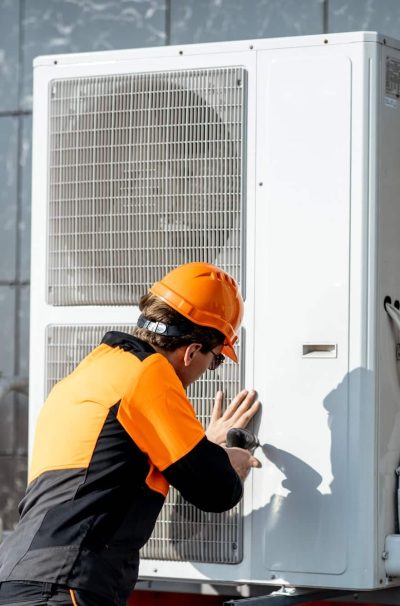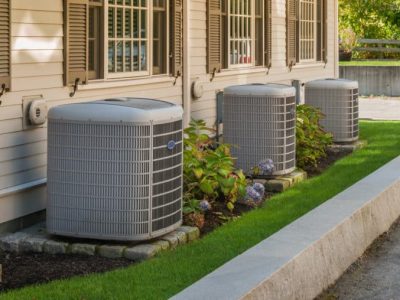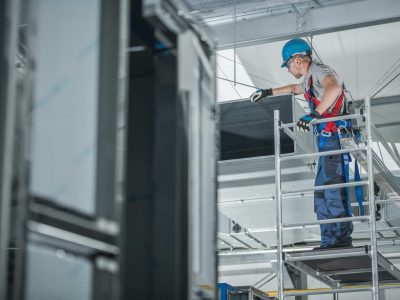To cut carbon emissions and stop climate change, international leaders are working to abandon the use of fossil fuels. In August 2022, President Joe Biden signed the Inflation Reduction Act (IRA) to fight inflation, lower prescription drug prices, and invest in domestic energy production while promoting clean energy. California Governor Gavin Newsom has taken immediate action to meet the critical climate goals set by the IRA.
As part of these efforts, California homeowners may be affected by changes to their heating sources. This article will discuss what the Inflation Reduction Act means for California homeowners and their heating systems. The Act may incentivize homeowners to switch to cleaner, more efficient heating sources, which can help reduce carbon emissions and improve energy efficiency in homes.
Homeowners can save money on upgrades by adopting clean energy sources and may be eligible for tax credits and rebates. We aim to assist homeowners in making informed decisions about their heating options while contributing to the fight against climate change. We’ll provide more information on these choices.
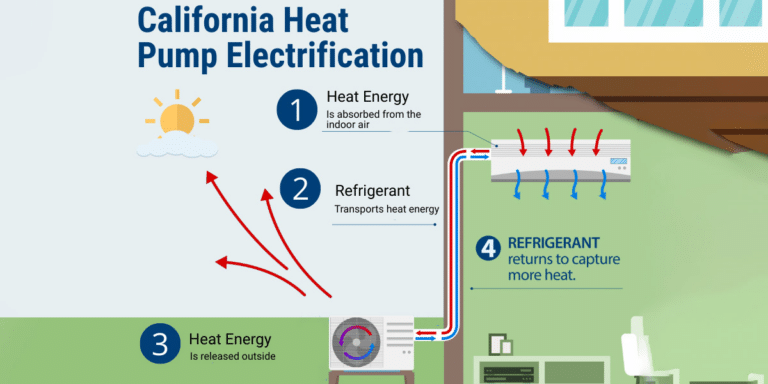
“Pumping” Into Climate Change
The Inflation Reduction Act (IRA) bill includes significant funding – $370 billion – to promote clean energy sources that can improve energy efficiency. The Act is designed to reduce carbon emissions by about 40% by 2030. Several steps are being taken to achieve this goal, including offering tax credits and rebates to homeowners who switch to energy-efficient heating options. Homeowners who do not qualify for a rebate can still receive a tax credit of up to $2,000 if they choose to replace their gas heating system with an electric heat pump.
In California, Governor Newsom has set a target of 3 million climate-friendly homes and 6 million heat pumps to be installed by 2030. This bold move towards a more sustainable future will require a significant investment in clean energy technology. For homeowners in California who are considering a new heating system for their homes, this is an excellent opportunity to take advantage of these incentives and contribute to a more sustainable future. By switching to a more energy-efficient heating system, you can not only save money on your energy bills but also help reduce carbon emissions and support the fight against climate change.
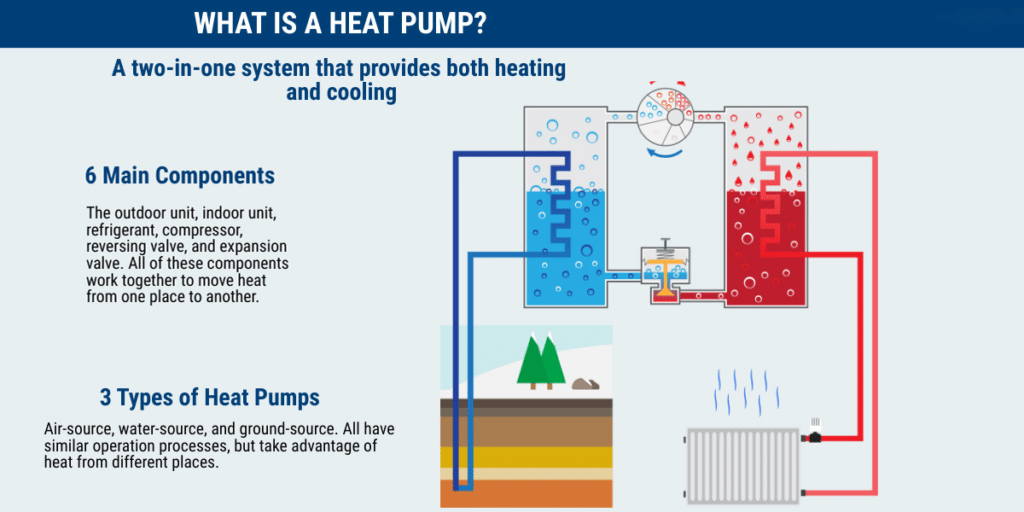
How Heat Pumps Benefit California
World leaders are actively working to decrease carbon emissions to enhance air quality and improve human health. A possible solution is to opt for energy-efficient heating and cooling systems, like heat pumps. Homeowners in California can benefit from heat pumps as they provide a sustainable and cost-effective way to regulate the temperature inside the house, especially since the weather in this state seldom drops below freezing.
In contrast to conventional heating systems, heat pumps don’t produce heat by burning fossil fuels. Instead, since they use electricity to transfer heat from the air or the ground into your home, heat pumps are a cleaner and more environmentally friendly option for heating. This can lessen your carbon footprint and enhance air quality, both of which are beneficial to human health.
Overall, heat pumps are a sustainable and energy-efficient way to heat and cool houses, especially in temperate climates like California. Homeowners can improve air quality and reduce carbon emissions, which can benefit both the environment and their health, by switching to a heat pump.
What Is A Heat Pump?
Many people are misled by the word “heat” in the name and believe that heat pumps only provide heat. Heat pumps are a versatile system that can both heat and cool homes. They work by “pumping” heat from one location to another rather than solely creating heat. This process makes them efficient and effective for temperature control. Heat pumps draw heat energy from the air, ground, or water outside your home in colder months and transfer it inside. Heat pumps collect heat from inside your home and move it outdoors in warmer temperatures.
Heat pumps have six main components that work together to move heat from one place to another: the outdoor unit, indoor unit, refrigerant, compressor, reversing valve, and expansion valve. The outdoor unit houses the compressor and refrigerant. The refrigerant absorbs and releases heat as it flows through the system. The reversing valve allows the refrigerant flow to be reversed, allowing the system to switch between heating and cooling modes.
There are three main types of heat pumps: air-source, water-source, and ground-source. Although they all operate on the same principle, they extract heat from different sources. For example, air-source heat pumps take heat from outdoor air, water-source heat pumps from nearby water sources like rivers or lakes, and ground-source heat pumps from buried pipes in the ground.
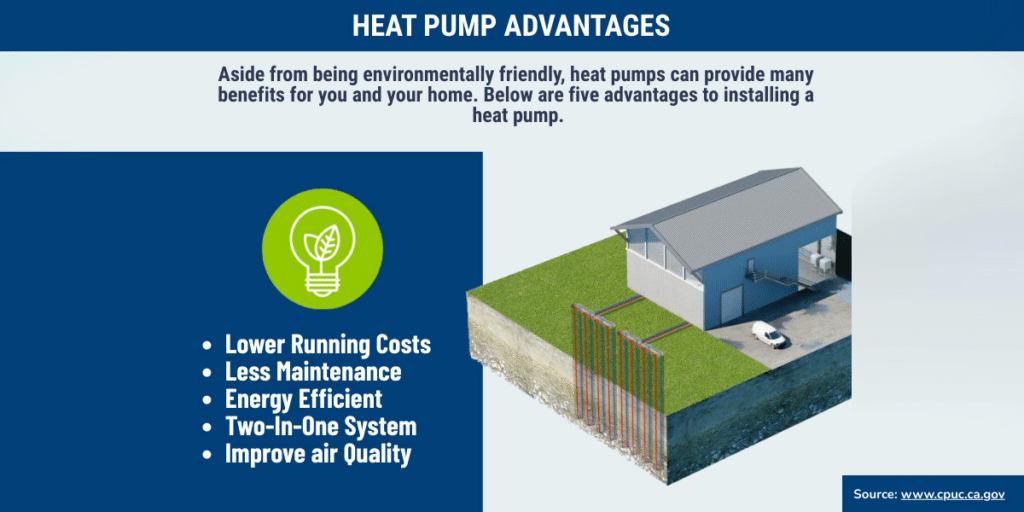
Advantages Of A Heat Pump
Heat pumps are not only an environmentally friendly heating and cooling option, but they also offer many benefits for homeowners. Here are five advantages of installing a heat pump:
- Lower running costs: Heat pumps are energy-efficient and can help lower your energy bills compared to traditional heating and cooling systems. This is because they move heat from one place to another rather than generating heat, which requires less energy.
- Less upkeep: When compared to other heating and cooling systems, heat pumps require less upkeep. This is because they have fewer moving components and are not impacted by the damage caused by burning fossil fuels.
. Energy-efficient: With some models attaining up to 300% efficiency, heat pumps are among the most economical heating and cooling choices available. This means they can use one unit of electricity to produce three units of heat.
Two-in-one system: Since heat pumps can be used for both heating and cooling, you only need one system to keep your home at a suitable temperature all year round.
- Improve air quality: Heat pumps can help improve air quality by reducing the amount of indoor air pollutants, such as dust, allergens, and mold spores. This is because they do not burn fossil fuels, which can release harmful pollutants into the air.
In conclusion, heat pump electrification is an increasingly popular trend in California and a key component of the state’s ambitious climate goals. As a sustainable and energy-efficient heating and cooling option, heat pumps offer many benefits for homeowners, including lower running costs, improved air quality, and a two-in-one system. With the Inflation Reduction Act providing incentives for homeowners to switch to clean energy and reduce their carbon footprint, now is an ideal time for California homeowners to consider installing a heat pump and contributing to a more sustainable future.
About TOP TEAM HVAC
TOP TEAM HVAC is a full-service heating, ventilation, and air conditioning company committed to providing industry-leading solutions, flat-rate pricing, and exceptional customer service. With a team of highly trained technicians, TOP TEAM HVAC offers comprehensive services, including installation, maintenance, and repair of HVAC systems for both residential and commercial clients.
For more information, visit www.topteamhvac.com or call 818-851-7111.

